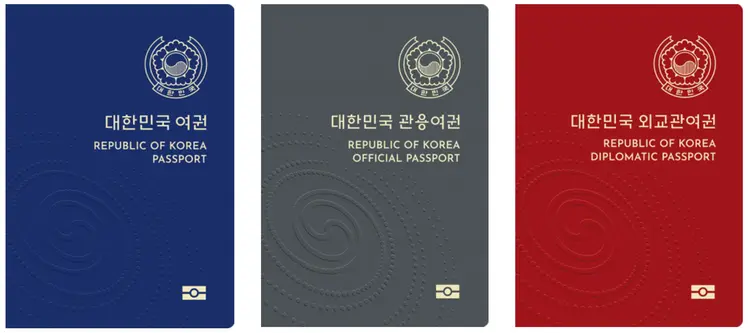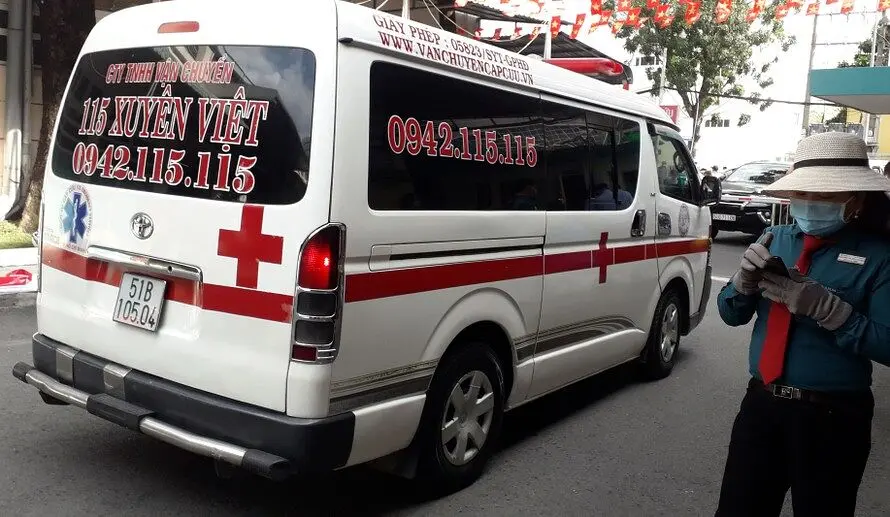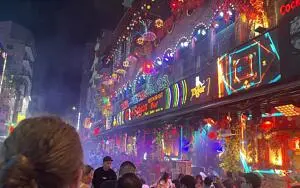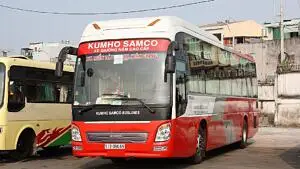Vietnam is an incredible country for solo travel, offering budget-friendly options for food, accommodation, and transportation, enabling travelers to make the most of their trip economically.
In our comprehensive guide, “16 Essential Tips for Traveling in Vietnam,” we covered various aspects of exploring the country. However, when it comes to solo travel in Vietnam, there are additional considerations that demand attention.
In this post, our primary focus will be on your safety—a paramount concern for solo travel in Vietnam.
Instead of providing specific recommendations on destinations and culinary delights, we will equip you with vital knowledge to ensure a secure and memorable experience throughout your solo travel in Vietnam.
3 Essential Steps for Solo Travelers in Vietnam
The insights and instances shared in this article are derived from my experiences throughout Vietnam.
These practical strategies are commonly employed in real-life situations, making it beneficial to familiarize yourself with them before embarking on a solo travel in Vietnam.
Always carry a copy of your passport in your pocket.
When solo travel in Vietnam, it’s important to be prepared for any unexpected situations that may arise. One crucial step is to always keep a copy of your passport with you.
Let me explain what could happen if you were to have an accident while in Vietnam.
To begin with, it’s worth noting that health insurance is not mandatory for Vietnamese citizens.
It is an optional expense, which implies that possessing health insurance signifies a certain level of financial stability in Vietnam.
- What would occur if you were involved in a car accident or if an unidentified Vietnamese individual were to be admitted to the hospital unconscious and required surgery?
In such cases, they may not receive immediate medical attention due to their inability to afford the medical expenses.
However, exceptions could be made for foreigners, assuming that their foreign status implies the capability to cover the costs.
So, always have the right ID while solo travel in Vietnam.
However, there is an even more troubling scenario to consider.
- What if you are incredibly unlucky and pass away while in Vietnam?
If you have no means of identification, you would be taken to an unmarked crematorium, where you would remain until someone comes forward to claim you.
Only after a considerable period has passed would you be cremated at that facility.
Consider the time it would take for someone to realize that you are missing or that something has happened to you.
Then, additional time is needed to contact the embassy and for them to take necessary actions.
Due to the limited presence of CCTV in Vietnam, it could take an extended period before you are located.
Moreover, Vietnam’s crematoriums are the same as the garbage dump. It’s real.
On March 23, regional news outlets such as Vietnam’s government-operated VTV announced the passing of a traveler who had sustained severe injuries in a motorbike crash.
Reports from local sources on the 25th indicated that the victim was a South Korean tourist. The delay in confirming his identity resulted from challenges in recognizing him, as the injuries from the incident were quite serious.
Realted artcle : Korean artist died in a motorbike accident in Vietnam (Vietnamese)
It’s best to assume the worst-case scenario and ensure you always have a copy of your passport while solo travel in Vietnam.
You can rely on the authorities to handle everything necessary by having a verified identification.

Travel insurance is essential, not a choice.
There’s a saying in Vietnam that a 911 ambulance is a funeral car.
This is because the ambulances in Vietnam are not equipped with the necessary equipment or facilities to keep people alive.
You will likely die if you are in a critical condition and need an ambulance.
This is why expats in Vietnam, or those who can afford it, often pay more to call a private ambulance.
Suppose a foreigner needs to visit a hospital in Vietnam. In that case, expecting to be treated at a local hospital is not realistic.
Local hospitals in Vietnam are not up to the same standards as international hospitals and may not have the necessary equipment or expertise to treat severe medical conditions.

This is why most foreigners who need medical treatment during solo travel in Vietnam go to international hospitals.
The cost of medical treatment in international hospitals in Vietnam is very high.
Let’s look at an example of what a hospital bill in Vietnam might look like.
In 2022, an acquaintance of mine had a pneumothorax, a punctured lung, and rushed to the emergency room in the middle of the night.
After telling them he had insurance, he could get surgery after paying a deposit of $1,500. The final amount charged was $16,000.
No one sides with foreigners in Vietnam.
Vietnam is a country known for its strong sense of nationalism.
In situations where conflicts arise between foreigners and Vietnamese individuals, it’s important to note that locals passing by may come to the aid of their fellow contrymen.
While Vietnamese people may appear small and thin, it’s advisable to avoid engaging in confrontations with them during solo travel in Vietnam.
If you sense a potential issue, it’s best to step back and defuse the situation.
Particularly after consuming alcohol, it’s crucial to offer apologies if any conflict arises. .
In cases where a problem occurs involving a foreigner in Vietnam, regardless of fault, it is common for the police, witnesses, even strange people to support the Vietnamese.
Ultimately, the blame is often attributed to the foreigner, regardless of the circumstances.
Therefore, it is strongly advised to avoid instigating conflicts with Vietnamese individuals.
Let me explain the process that unfolds if you find yourself in a situation where the police are involved in Vietnam.
To begin with, you will be escorted to a public security office, where the first request will be for you to present your passport.
If you don’t have it with you, they will instruct you to return home, retrieve it, and come back to the office within a specified timeframe.
Once you hand over your passport, it will be held by the authorities until the matter is resolved.
The duration of this process can vary, ranging from a week to a couple of weeks.
(In such cases, it is common practice to offer a bribe to the police, who will then process the necessary paperwork and return your passport to you quickly.)




If you don’t have it with you, they will instruct you to return home, retrieve it, and come back to the office within a specified timeframe